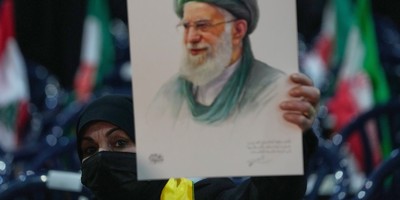It was the most Obamaesque address to date.
"For those who question the character and cause of my nation," the president pronounced Wednesday, "I ask you to look at the concrete actions we have taken in just nine months."
America is 233 years old. Some think that there are ample accomplishments speaking to our character and cause that predate Obama's ascension to the presidency.

Feh, Obama seems to be saying. Look instead to our new greatness, for we have elected a man like him!
Having anointed himself America's vindicator and redeemer, Obama's real purpose seems to be to become the leader not of the free world but, simply, the world.
"No world order that elevates one nation or group of people over another will succeed," Obama said. "No balance of power among nations will hold. The traditional divisions between nations of the South and the North make no sense in an interconnected world; nor do alignments of nations rooted in the cleavages of a long-gone Cold War."
The United Nations is an odd venue to say such things. The Security Council is premised on nothing if not a balance of power, and the U.N.'s roots go nowhere if not deep into the chilled soil of the Cold War. It is odder still for the president of the United States of America to say such things. Is NATO -- currently fighting what until recently Obama defined as a "war of necessity" in Afghanistan -- now obsolete? What do the South Koreans or the Japanese think of such rhetoric?
More important, our alliances weren't merely the balancing of power, they represented a contest of values. The Cold War was informed by America's principled support for free nations over tyrannical ones. Compromises were made, to be sure, but our values were never abandoned.
Recommended
The president's defenders say that there is realpolitik behind the U.N. boilerplate, that he is pursuing America's interests even if he sounds like he's agreeing with our enemies about pre-Obama America's flaws. Specifically, they argue that he is laying the necessary groundwork to contain and isolate Iran, coaxing the Russians into a new round of sanctions against the Iranians. If he succeeds in that regard, Obama should be congratulated.
The problem with this analysis, however, is that most of what Obama said Wednesday was a repeat of what he has said many times before, on the campaign trail, in Berlin and in Cairo. He has said this stuff so often, some might be forgiven for thinking they are more than just words.
The greatest danger, Obama declared in Berlin, is not terrorism or global warming or even nuclear war. No, the "greatest danger of all is to allow new walls to divide us from one another." This week he rehashed the same rhetoric. "The time," Obama assured us again, "has come for those walls to come down."
Walls often exist for a good reason. They mark clear lines between peoples and nations. The Berlin Wall was not built by us, but by those who could not tolerate liberty. It is good that it came down with our victory in the Cold War. But it would have been better to keep it up than lose that struggle.
Of course, Obama's objection isn't to physical walls but figurative ones. His real point is that the cult of unity that marked the worst excesses of his presidential campaign should go global. "Old arguments are irrelevant to the challenges faced by our people," he says. Rather, "the interests of nations and peoples are shared."
The problem with this notion of shared interests is not that it's untrue, but that it's a half-truth. Some interests are shared, others not. It was in Poland's interest for us to honor our commitment on missile defense. Obama concluded that it was better for us to appease Russia's interests.
A core attitude unites Obama's domestic and foreign-policy visions: Principled disagreements are not legitimate if they do not conform to the president's agenda, be it on health care domestically or global warming and nuclear disarmament internationally. Call it a progressive version of "if you're not with us, you're against us."
According to Obama, a highlight in his nine months of redemptive accomplishments was his decision to join the Human Rights Council, a corrupt, farcically bureaucratic carbuncle designed to vilify Israel and whitewash the abuses of evil regimes. Critics say we should not lend it more authority. But by Obama's logic, such concerns are rooted in old arguments and ancient, irrelevant cleavages.
Meanwhile, 53 paragraphs into a 63-paragraph speech, Obama said that we should not view the principles of democracy as an afterthought.

























Join the conversation as a VIP Member